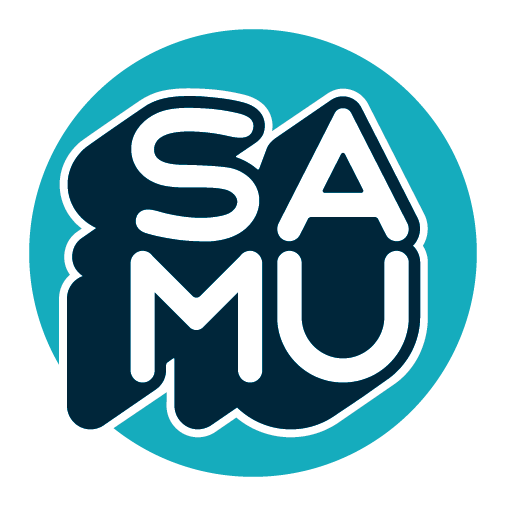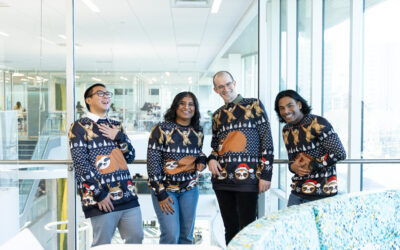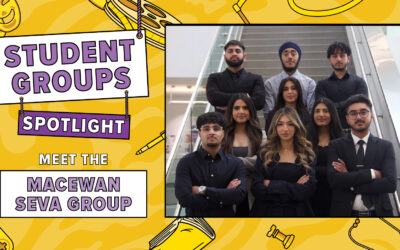Thanks for joining us! For our readers, please introduce yourself.
Abhijeet: Thank you for having us! My name is Abhijeet Singh, and I’m a fourth-year legal studies major. I’m a current member of the UN Club and a past President, or if you’re using the technical term, the past Secretary General.
Brant: My name is Brant Harker. I’m the Vice President of Operations at the UN Club and a fourth-year computer science student!
Nathan: and my name is Nathan! I’m the current President and Secretary General of the MacEwan United Nations Club, pursuing a Bachelor of Science degree in my third year of a computer science major.
What is the United Nations Club, and what do you do?
Nathan: Since 1993, the MacEwan United Nations Club has educated MacEwan University students on the curriculum of international relations and Model United Nations (MUN). As part of this, we provide students with the opportunity to participate in MUN conferences around the world and build valuable skills like public speaking, research, negotiation and writing! Most recently, we’ve travelled to Germany and New York, but we’ve been to places like South Korea, Japan, and the Galapagos Islands. We’re also widely renowned in the community for winning local, national, and international awards.
Our club operates differently than others. We run a syllabus where we teach students weekly lectures until the annual conference in New York in March, educating them about conference rules, procedures, and how to find success.
That sounds like a fantastic opportunity to travel and build important skills! What are the sort of things you focus on during these training sessions?
Abhijeet: Every Monday (usually) from 5:00 to 6:00 pm, our executive team will teach interested students the rules and procedures they need to know to showcase their abilities at the annual New York conference and an additional trip that takes place in the Fall semester. Attending these weekly sessions is a great way for students to learn international diplomacy skills and how to collaborate with their fellow delegates to achieve a diplomatic result. This requires students to work intuitively with many people and teaches valuable public speaking and communication skills while also giving students the opportunity to learn and travel internationally when they may not otherwise be able to. We bring out the best in everyone who participates and make them part of our team.
There must be many students who want to get involved with this. Is the selection process competiti
Abhijeet: Yes, it is competitive. The executive team works with our faculty advisor, Dr. Chaldeans Mensah, to ensure a fair selection process. At the first meeting of the year, everyone signs a constitution that outlines the expectations and requirements to attend the conferences. If they live up to that, there’s a high chance they will be selected. It operates like a class where we provide lessons and homework. Obviously, it isn’t required for their studies, but showing up and putting the work in is a key part of being selected because we want to send a solid team to each conference.
On top of that, students must write a two-page essay that explains why they want to attend and why they think they’re qualified. Based on these factors, we select a primary “Team A” to attend the conferences and a “Team B” who can be a replacement if a Team A member cannot attend. We’re proud of each student we select to attend the conferences, and this work has paid off as our team has won the “Delegate of the Year” award every year since we began in 1993.
Why did you decide to get involved with UN Club?
Brant: I was taking a Political Science course on International Relations out of personal interest, and the professor was our current faculty advisor, Dr. Mensah. He suggested that I get involved to learn more about the topic. I also wanted to get involved with Student Groups and meet more people. It’s been a great way to round out my degree because there aren’t many opportunities for speaking and writing in my major. I’ve had a fantastic time with this club!
Nathan: I originally joined the club because of my strong interest in international relations and diplomacy and because I want to go to law school after I get my Bachelor’s degree ( I know that might seem a little odd as a computer science student). One thing that initially appealed to me was the New York trip because I love that city, but since then, it’s come to mean so much more to me. We connect with so many great people from different cultures and heritages that we otherwise wouldn’t have the chance to. Last year I met people from Ukraine, Germany, and Taiwan, to name a few. It’s great to meet these people and build relationships with a diverse group.
Abhijeet: My story is similar to Nathan’s. I’m a business student who wants to go to law school, so I always had an interest in international relations. I always wanted to take a Political Science class but couldn’t afford to fit it in with my Business degree. The next option was to join the UN Club. I started as a small-time member with ZERO public speaking skills. I was so nervous at my first-ever mock conference, standing in the corner and completely silent. Slowly I gained confidence, and now I’m proud to say that I spoke in front of 500 people when I won an award at last year’s conference. I attribute this all to the UN Club and Dr. Mensah and how they teach students like myself. Even if you don’t like international diplomacy, you can always join the club to improve your speaking and writing skills.
Tell us about an event or initiative your group hosted that you’re proud of.
Abhijeet: One of the most significant initiatives this club did was what we did last year for a student who was at MacEwan on scholarship from Kyiv, Ukraine, who the war in that country had impacted. She decided to join the UN Club because of her love for diplomacy. When she joined, our team took her to coffee to learn about her story. Her English was not the greatest then, but it was her third language, and she was still learning. She showed up to every meeting and put in the work to improve her skills, and she joined us on this year’s trip to New York! Not only that, but she had to go to Calgary to get a visa as a Ukrainian citizen. We drove down there with her and helped with her paperwork so she could join us on the trip. I think this is the greatest initiative this club has undertaken because of our impact on this person. We all talk to this day!
What would you say to someone considering joining a student group?
Nathan: Go for it! In my first year, I was scared of all these student groups. Transitioning from high school to university was difficult for me, but after taking the leap, I’ve realized it’s really fun! You meet so many new people, and it’s a fantastic way to expand your community at MacEwan.
Brant: Agreed! Joining a group is easily one of the best ways to meet people and make friends on campus. Particularly if you have a specific interest, there is a group for you. It’s a great way to round out your university experience.
Abhijeet: I always tell students that no matter what skill they want to improve, whether it’s public speaking, international relations and diplomacy, writing and more, we do it all. These skills can help you in many careers, from business to law to medicine and many others. We have many students who came to meetings so they could put it on their resumes and then ended up falling in love with the club all on their own. Take that leap. It’s worth it!
You can connect with the MacEwan United Nations Club on social media through Instagram (@macewanun), Facebook (MacEwan United Nations Club) and X, formerly known as Twitter (@macewanun).
Follow SAMU on social media through Instagram (@sa_macewan), Twitter (@SAMacEwan), and Facebook (Students’ Association of MacEwan University) to stay up to date on the latest events, programs, and services from your students’ association.



